
Zendesk Entity Detection for Intelligent Triage (EAP)
The new Entity detection for Zendesk Intelligent Triage allows you to now not only know why customers are contacting you, but also know what they are talking about.
Zendesk AI is Zendesk's overall name for all the AI powered features of their platform. It powered AI Agents, which allow you to offer self service and deflect tickets. Agent Copilot integrates deeply in Agent Workspace and assists agents with procedures, actions and prewritten replies and context. and Zendesk QA with its AutoQA feature reads every conversation and gives insight in your tickets.
One final piece of the Zendesk AI suite of solutions is Intelligent Triage. It's the engine that reads every incoming ticket and tries to assign an intent, or use case, to the ticket so you know what the ticket is about.
For example, if a customer sends a lengthy email about an order, Intelligent Triage will tag it as Order Cancellation, Refund request, or Order Status inquiry. This intent detection then allows you to not only get insights in the kind of questions customers ask, but it'll also allow you to route tickets to the right team or person, give it a different priority, or use it to give automated answers via AutoReply.
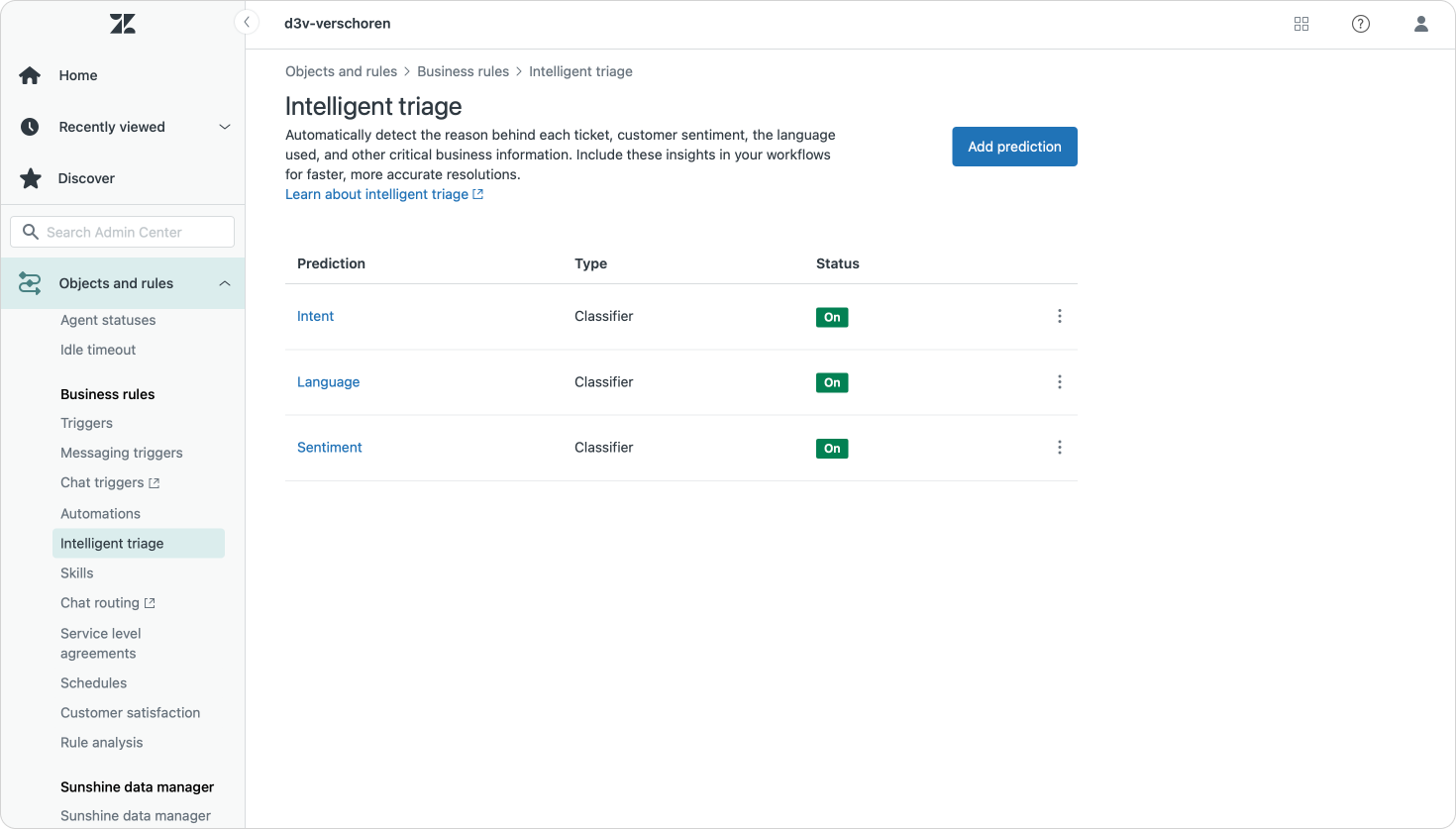
There is however a second thing you need to know before you can really route tickets correctly. A customer that asks about Software update instructions, needs totally different guidance and agents if they use an iPhone, versus those using an Android device. This is where the new entities come in.
So where intents are there to know why the customers are contacting you, entities are there to know what they’re talking about. - Adrian McDermott - AI Summit
Entity detection
Entity detection in Intelligent Triage is a new feature that's part of the Advanced AI add-on that allows you to add new predictions to the list. Those predictions contain a list of possible options, and Zendesk will try to match words or sentences in a conversation to those options.
For example, let's say we are a care department for Superheroes. In order to better assist our heroes, we want to detect which super power they need help with. With the new Entity feature we can create a Super Powers prediction.
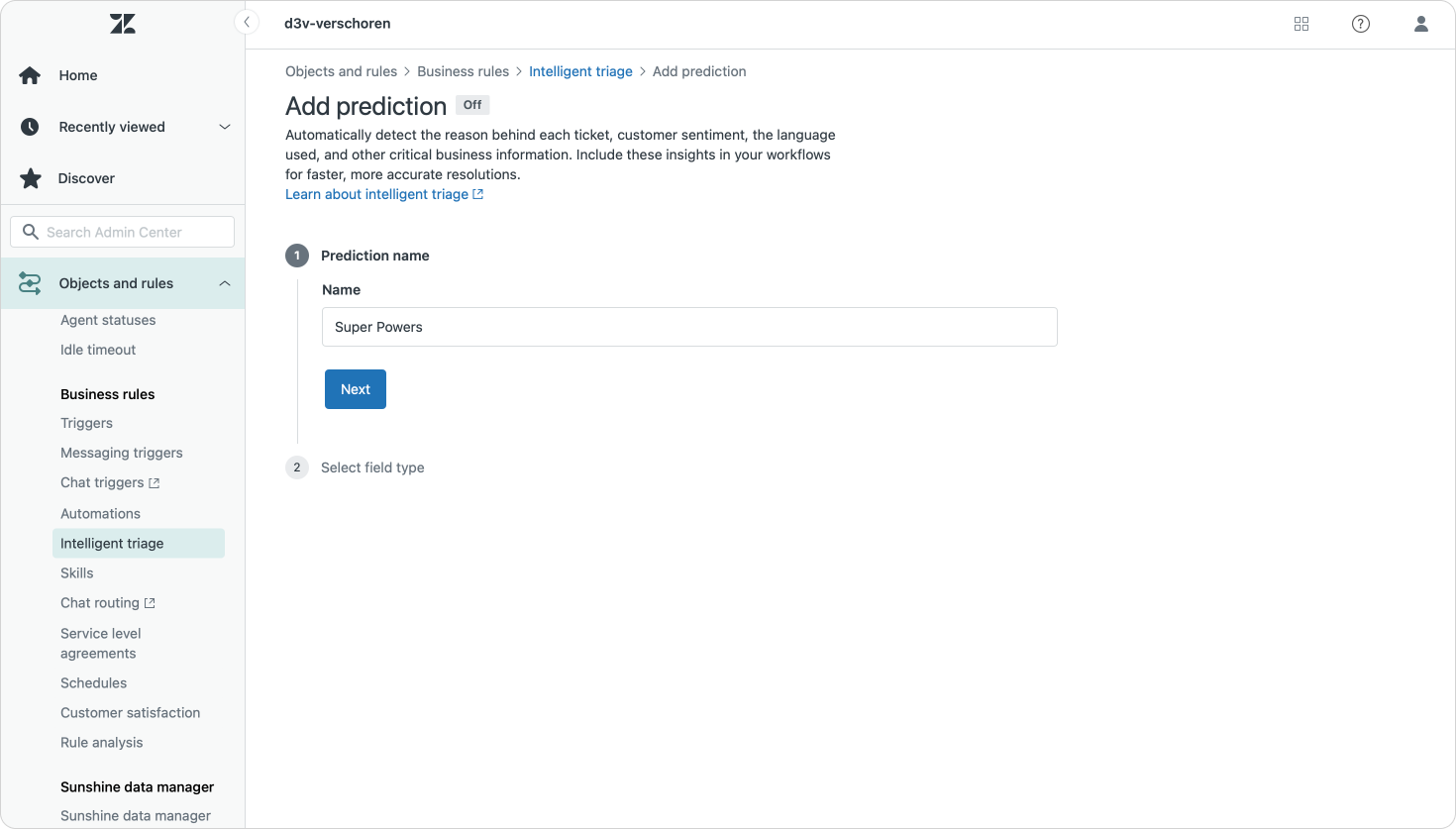
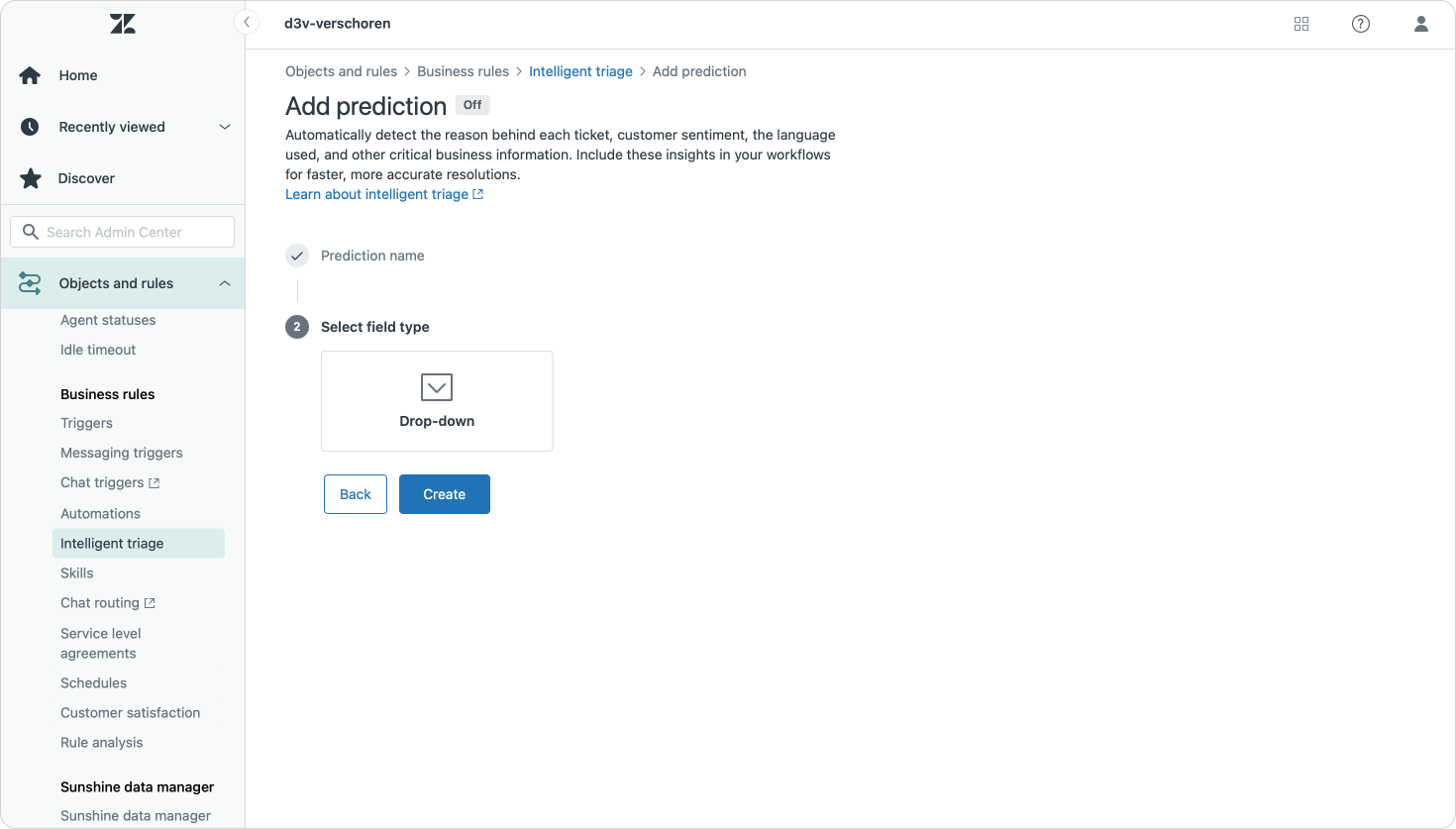
Adding a new Entity
We can then add a list of expected values – flight, invisibility, telekinesis,... – to our entity. These values can be added exactly like a regular dropdown in Zendesk. You can manually add them one by one, or you can import a list of values via csv.
value,tag,default
Energy Manipulation,entity__eaez__super_power__energy_manipulation,false
Flight,entity__eaez__super_power__flight,false
Healing,entity__eaez__super_power__healing,false
...After importing them, the system will take a few moments to process the data, and your new Entity is ready for use. At any time you can come into the list, and add or remove entities.
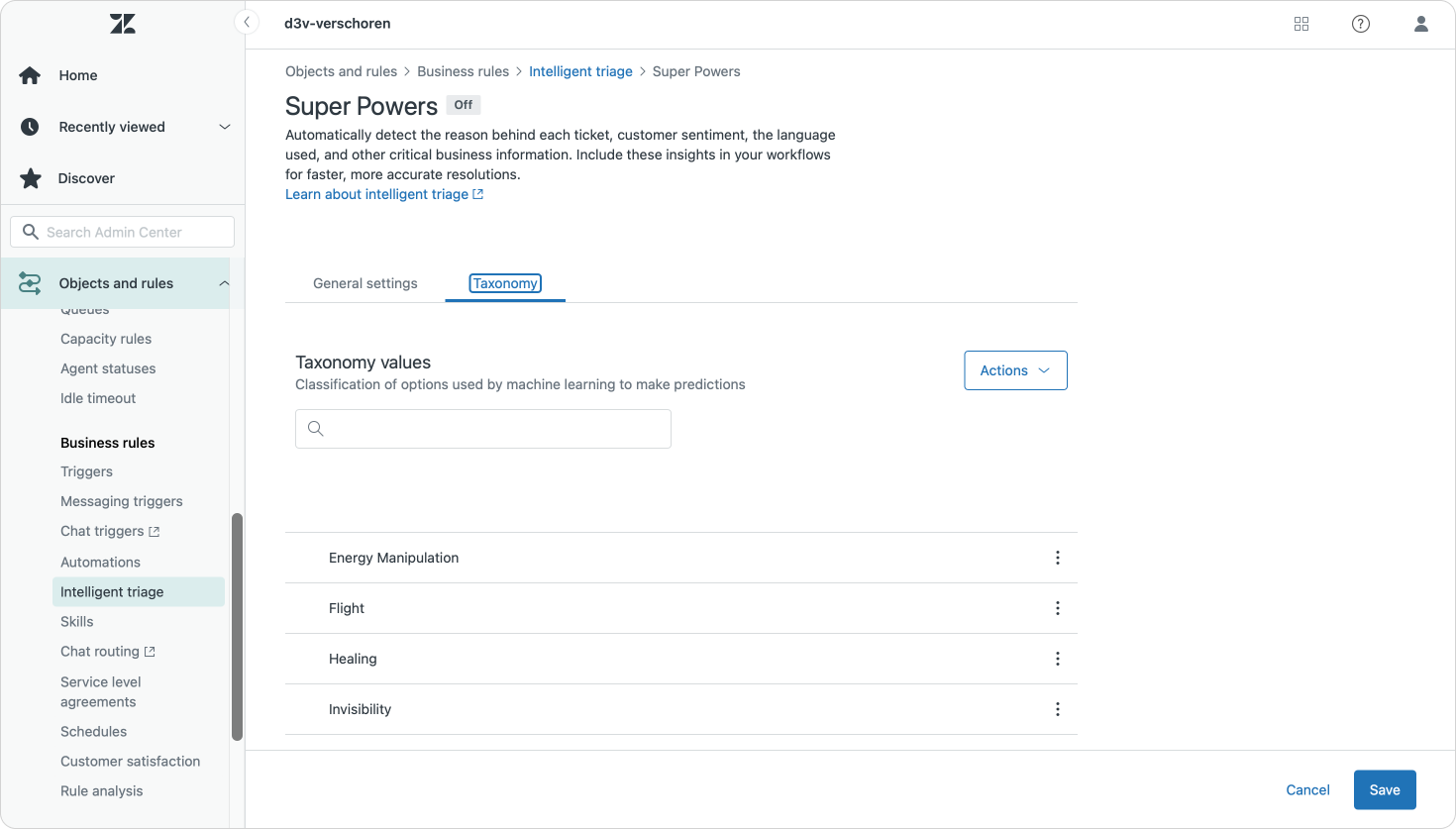
You can add as many different entity predictions as you want, so you can check for e.g. operating system , device color, location,...
Using entities
The most basic way of interacting with Entities is by enabling two settings for your new entity:
- Updating Ticket Fields
- Highlighting them in the conversation
You can choose to create and fill in a custom field with the detected value. This will create a new ticket field which will be updated if we detect an entity. Since customers will not always e.g. their product type in the first message they send, you might want to opt for updating the value for the first, subsequent or all messages.

Once configured you can add the custom field to your ticket forms. This is not required, but might be useful if you want agents to manually change the chosen value if the entity detected the wrong thing.

And voila, once configured your agents' will now see our super hero's power in highlighted in the conversation, and it'll also be prefilled in the ticket field, so we can create Explore reports on the detected data, or use it for triggers or other flows.

Using them in triggers
Since Entity detections runs upon ticket creation, we can use this new feature in our triggers too. We could for example decide that we raise the priority for tickets with a specific super power.
Or we could decide that tickets about telekinesis or psychic powers should be routed to the Witches and Magic support group.

One additional benefit of Entities is that you can probably remove a lot of triggers too. We all know or have those triggers that check for certain keywords in conversations and then set a category or product dropdown in our ticket fields. Since entities take care of both detection those keywords and setting the field, you can remove these types of triggers.
Or to turn it around, if you have such triggers, these are prime use cases to start testing out Entity Detection.
Using them in queues
Triggers are not the only place where Entities are useful. If you use the new Omnichannel Routing queues, you can use these in combination with Intents to add specific tickets to specific queues.

Skills based routing
And similarly, if you use skills and skills based routing, you can create a new Agent skill for Super Powers, and then assign specific types to a skill.
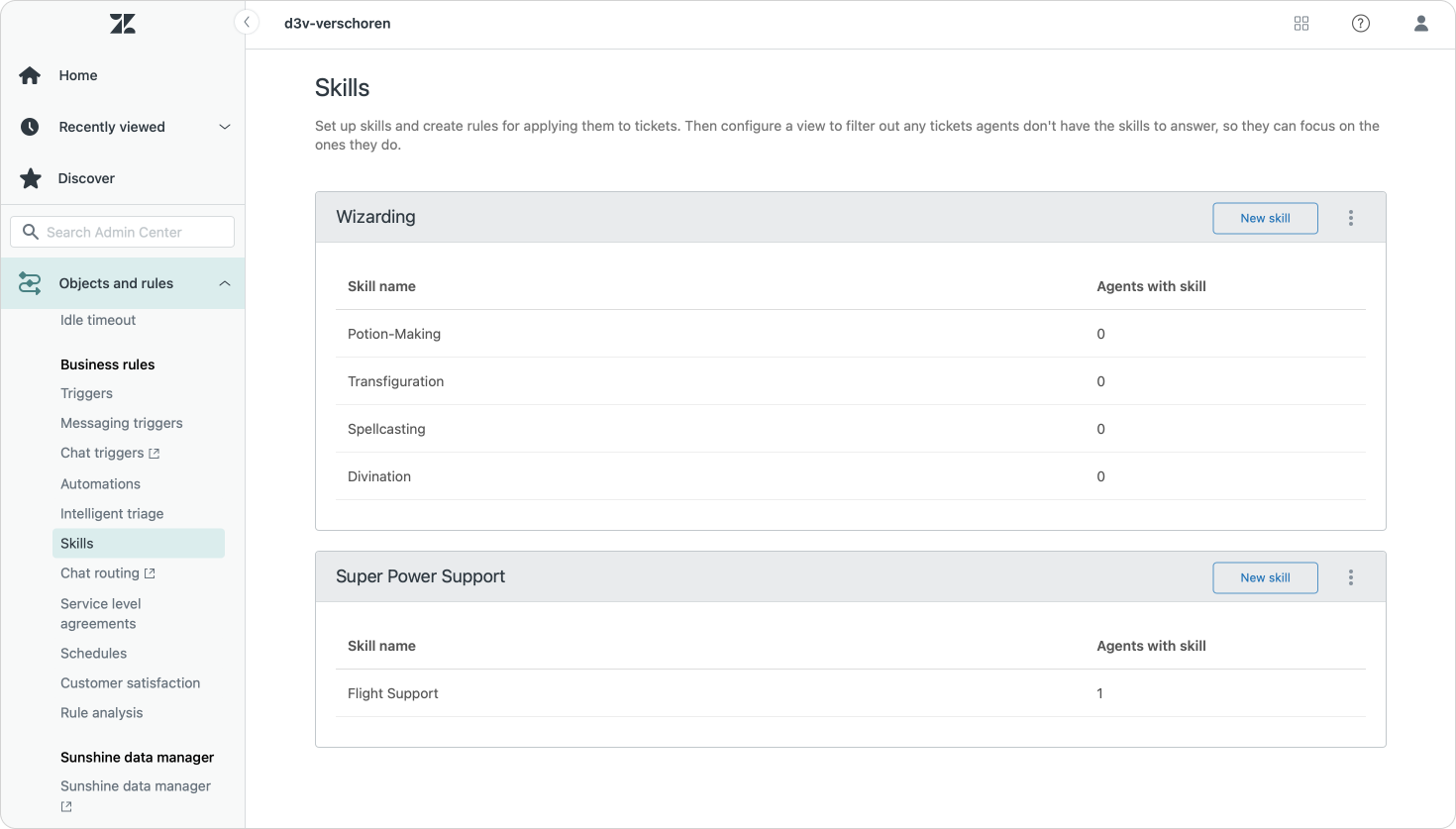
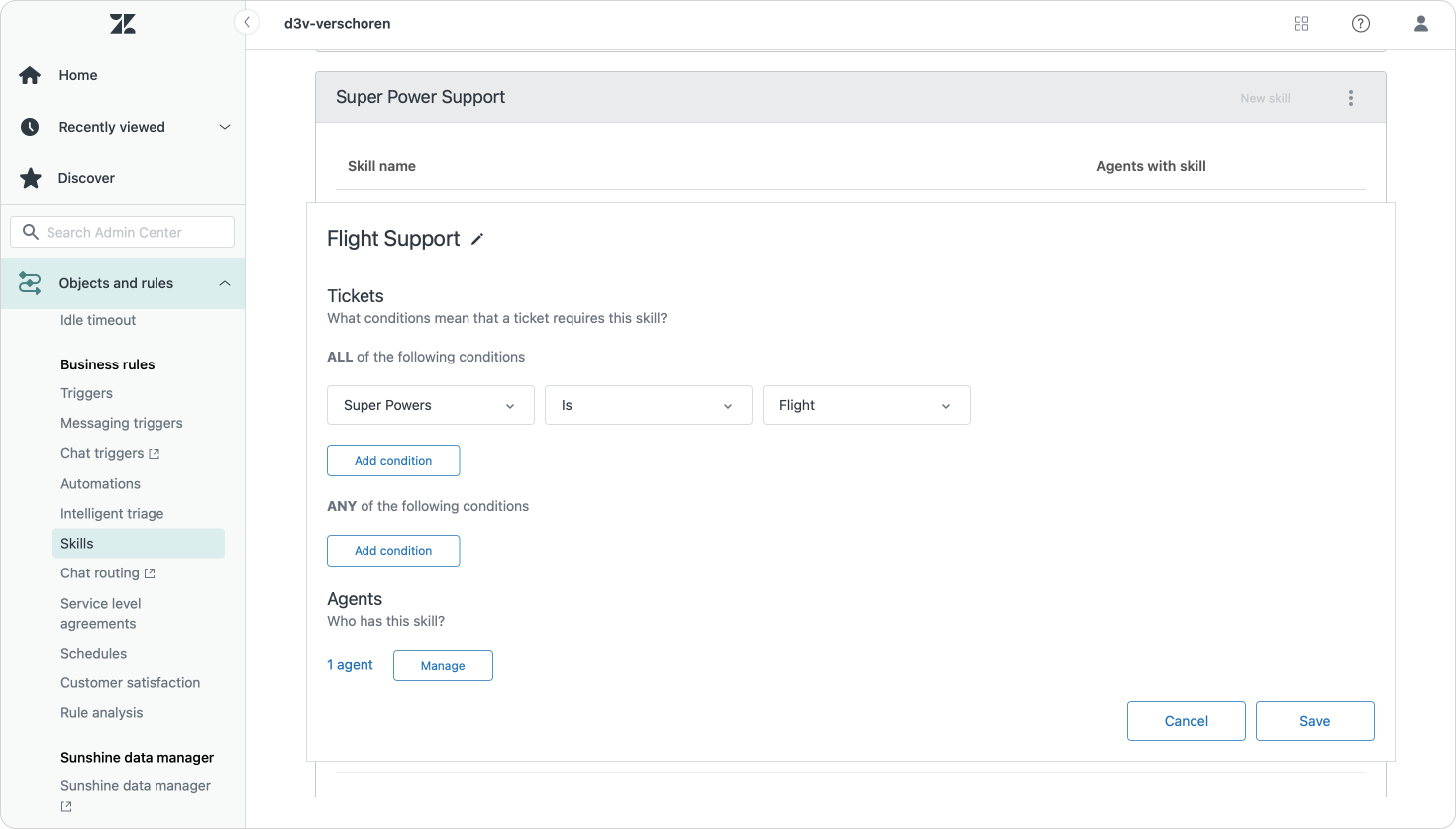
We want to make sure Flight related tickets gets assigned to agents with fly-experience
Conclusion
Entity Detection in Zendesk is a pretty cool feature. It replaces a lot of old trigger logic and makes profiling tickets fields a lot easier than before.
From a setup perspective this does require a bit of a mind shift though. Instead of going into ticket fields and adding a Product dropdown, you now need to remember going into Intelligent Triage and creating a Product entity.
For new setups this is just a thing you need to think about, but for existing setups you'd almost hope for a convert ticket field into entity feature to adopt existing dropdown fields without losing your existing ticket field data and tags.
Similarly, for now entities are limited to dropdown lists of predefined values. But for elements like an order number, booking date or serial number, some kind of regex option or other types like integers or dates would be useful too.
There's also a big overlap with Custom Objects here. If I create a custom object that contains all my locations or products, I kinda want the Entity Detection to be able to look into that database to find a match no?
Either way, this feature is an EAP for now, so let's just the feature based on what's here today, instead of wishful thinking for the feature.





